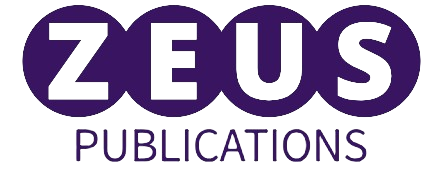In today’s fast-paced business world, finding the right talent can feel like searching for a needle in a haystack. Enter RPO partnerships—a game-changing solution that streamlines recruitment processes and takes the burden off your HR team. Whether you’re a small startup or an established enterprise, tapping into the expertise of an external partner can revolutionize your hiring strategy. With RPO partnerships, companies not only gain access to top-tier candidates but also enhance their overall efficiency. Ready to explore how these collaborations can drive success? Let’s dive into the essential elements of thriving in the realm of RPO partnerships!
Understanding RPO (Recruitment Process Outsourcing)
Recruitment Process Outsourcing, or RPO, is a strategic approach to recruitment. It involves delegating all or part of the hiring process to an external provider. This partnership allows companies to focus on their core operations while experts handle talent acquisition.
RPO encompasses various stages including sourcing, screening, interviewing, and onboarding candidates. The goal is to create a more efficient and effective hiring process that aligns with business objectives.
Many organizations choose RPO for its flexibility. Whether you need help during peak hiring seasons or are looking for ongoing support, an RPO partner can adapt to your needs.
Moreover, leveraging technology in RPO enhances data-driven decision-making. Recruitment analytics play a crucial role in identifying trends and improving processes over time. This insight helps businesses make informed choices about their workforce strategy without getting bogged down by day-to-day operational challenges.
Benefits of RPO Partnerships
RPO partnerships offer a streamlined approach to recruitment. Companies can tap into expert knowledge without the burden of managing an in-house team. This leads to better hiring quality and faster turnaround times.
Cost savings are another significant advantage. By outsourcing recruitment, organizations reduce overhead costs associated with salaries, training, and technology. RPO providers often have access to advanced tools that improve efficiency.
Flexibility is key in today’s market. RPO partnerships allow companies to scale their recruiting efforts up or down based on fluctuating demands. This agility ensures that talent acquisition aligns perfectly with business needs.
Additionally, these partnerships enhance employer branding. A professional RPO provider helps present your organization positively to potential candidates, improving engagement and attracting top talent from various sectors.
Leveraging data analytics through RPO can provide insights into recruitment trends and candidate preferences, leading to informed decision-making for future hiring strategies.
Challenges in RPO Partnerships and How to Overcome Them
RPO partnerships can present various challenges that may hinder progress. One common issue is miscommunication between the internal team and the RPO provider. Misaligned expectations can lead to frustration on both sides.
Another challenge lies in adapting to changing business needs. Companies often experience shifts in hiring priorities, which might not sync with the RPO’s strategy.
To tackle these obstacles, regular check-ins are crucial. Establishing open lines of communication helps clarify goals and expectations.
Flexibility also plays a vital role in overcoming change-related hurdles. Both parties should be willing to adjust their processes based on evolving requirements.
Fostering a strong relationship built on trust encourages collaboration. When partners feel invested in each other’s success, they’re more likely to navigate challenges effectively together.
Best Practices for a Successful RPO Partnership
Clear communication is critical in any RPO partnership. Ensure that both parties understand expectations, goals, and processes from the outset. Regular check-ins can help maintain alignment.
Next, focus on building trust. Share insights and data openly to foster a collaborative environment. Trust enables teams to work more effectively together.
Flexibility also plays a significant role. The recruitment landscape changes rapidly; being adaptable helps address shifting needs or challenges as they arise.
Investing in technology is another best practice. Utilize platforms that streamline processes and enhance collaboration between your team and the RPO provider.
Prioritize continuous improvement by regularly assessing performance metrics. Gather feedback from all stakeholders to identify areas for enhancement and ensure lasting success in the partnership.
Case Studies: Real-Life Examples of Successful RPO Partnerships
One notable case study involves a tech startup that partnered with an RPO provider to fill specialized roles quickly. The company was struggling to attract top talent in a competitive market.
Through this partnership, the RPO team implemented targeted sourcing strategies and leveraged advanced recruitment technology. Within three months, the startup successfully hired ten key positions, significantly boosting its growth trajectory.
Another example comes from a multinational retail chain facing high turnover rates. By working closely with their RPO partner, they developed tailored onboarding programs and employee engagement initiatives. This collaboration led to a remarkable 30% reduction in turnover within one year.
These examples highlight how effective RPO partnerships can transform hiring processes and drive business success across diverse industries. Companies that embrace these collaborations often see quicker results and improved workforce stability.
Measuring Success in RPO Partnerships: Key Metrics to Track
Measuring success in RPO partnerships requires a keen focus on specific metrics. One of the most critical indicators is time-to-fill. This metric reveals how quickly positions are filled, showcasing the efficiency of the partnership.
Cost-per-hire is another essential metric to track. It helps organizations understand their recruitment spending and evaluate budget effectiveness against hiring outcomes.
Quality of hire also plays a vital role. By assessing new employees’ performance over time, businesses can gauge whether their RPO partner attracts the right talent for long-term success.
Candidate satisfaction scores provide insight into job seekers’ experiences during the recruitment process. Positive feedback indicates effective communication and engagement practices.
Retention rates should not be overlooked. High retention suggests that hires fit well within company culture and roles, reflecting positively on both partners’ efforts in sourcing top candidates.
Conclusion: The Future of RPO Partnerships
As businesses adapt to an ever-changing job market, the role of RPO partnerships continues to evolve. Organizations are increasingly recognizing the strategic value these collaborations bring. By leveraging specialized recruitment expertise and advanced technologies, companies can enhance their talent acquisition processes.
The future looks promising for RPO partnerships. With a growing emphasis on data-driven decision-making and personalized candidate experiences, organizations that embrace these trends will likely outperform their competitors. Enhanced communication between partners will be crucial as well, allowing for agile adjustments in strategy based on real-time feedback.
Furthermore, as remote work becomes more normalized, RPO providers must innovate to support diverse hiring needs across various regions. This opens up new possibilities for sourcing global talent while maintaining compliance with local regulations.
Those willing to invest time and resources into nurturing strong RPO partnerships stand to gain a significant competitive edge in attracting top-tier talent now and in the years ahead. The landscape is shifting rapidly; adapting quickly could very well define success in this arena.
FAQs
Q: What is an RPO partnership?
Ans: RPO partnership is a collaboration where an organization outsources its recruitment process to a specialized provider to enhance hiring efficiency and access a wider talent pool.
Q: Why is communication important in RPO partnerships?
Ans: Clear communication ensures both parties understand goals, processes, and expectations, which leads to smoother operations and better hiring outcomes.
Q: How can RPO partnerships improve recruitment efficiency?
Ans: RPO providers streamline recruitment by using advanced technology, experienced recruiters, and proven processes to fill positions faster and more effectively.
Q: What factors lead to successful RPO partnerships?
Ans: Success in RPO partnerships often depends on open communication, clear objectives, aligned strategies, and mutual trust between the organization and the provider.
Q: How does an RPO partnership expand talent access?
Ans: RPO providers have access to a broader talent network and specialized recruitment tools, allowing organizations to reach high-quality candidates more effectively.

